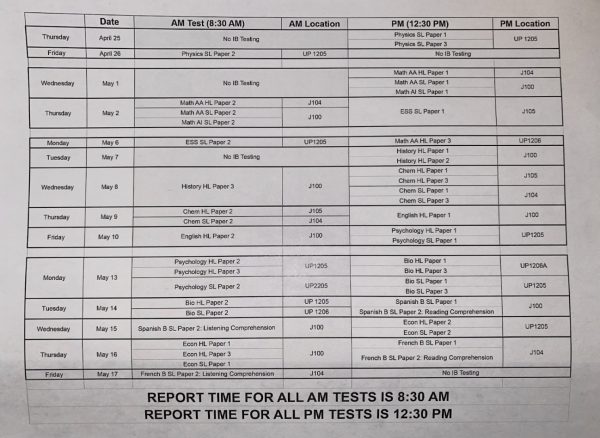SPACEX MAKES PROGRESS WITH FALCON 9
March 25, 2015
Without government, privately owned companies like Space X are able to strive for more progress in the developing world of space travel.
Photo By: Whitten Bumbalough, Photo Manager
By: Patrick Murphy, Reporter
In recent years, space exploration by private companies has increased; of these, the most prominent is the California based SpaceX. SpaceX has recently been testing their new Falcon 9 rocket with a reusable rocket booster.
With the Falcon 9 rocket, SpaceX has accomplished an unprecedented feat. When the main rocket booster runs out of fuel and detaches from the rocket, it uses GPS technology to fall onto a platform in the ocean where workers can then go retrieve the booster and reuse it on the next flight. Although some instances have occurred with a few rockets not being able to slow down in time and exploding on the platform, they are getting closer with every launch.
SpaceX has had many firsts with space travel, the Falcon 9 was the first commercial rocket to visit the ISS in 2012. SpaceX is working towards being the first company to deliver a person into space which is a part of the Falcon 9 mission’s Dragon capsule
Space programs have traditionally been run by the government until recently when billionaires such as Elon Musk, owner of SpaceX, have started up companies to test rockets. These companies have become so advanced that NASA has made a contract with SpaceX for the company to use their rockets to make deliveries to the ISS for NASA.
Sophomore Nia Dudley says, “I think it’s really cool that companies are getting involved in space travel. Competition makes things cheaper and more advanced.”
Companies like SpaceX have less hoops to jump through to stage a launch due to the fact that they’re privately owned, therefore they conduct more launches than NASA. Since they are a privately run company they have freedom in what they do as long as it’s within the bounds of the law.
Astronomy teacher Mr. Cush Copeland says, “I think [private companies being involved in space travel] is great, the future of space exploration is in the private sector now. They need to make money, and reusing the main rocket boosters will make it cheaper.”
Senior Libo Chang says, “It sounds better; private companies aren’t held to funding programs like NASA, but part of the problem is NASA has regulations these companies don’t have to follow.”
The launch for the Deep Space Climate Observatory (DSCOVR) satellite scheduled for February 8 and February 10 was rescheduled due to poor weather conditions and launched on February 11. This particular rocket is carrying a satellite that is owned in partnership by NASA and the US Army to study solar winds.



































